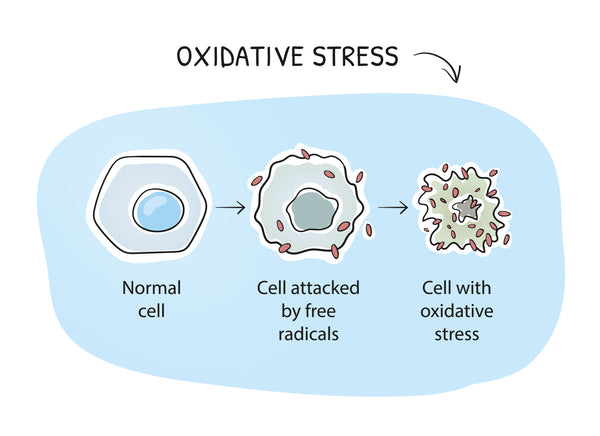CBD and Inflammation: The Science
CBD is often touted by consumers and researchers alike, as a cure-all, a miracle molecule that holds the potential to relieve a wide range of conditions from seizures to ulcers to joint inflammation and swelling. Today we will be reviewing the scientific studies that point the finger at the possibility when it comes to reducing inflammation in the body.

First, let us talk about what inflammation is. Inflammation is defined as a localized protective reaction of tissue to irritation, injury, or infection, characterized by pain, redness, swelling, and sometimes loss of function. Inflammation in the short term is healthy, as it is part of the body's natural healing process and helps to get extra blood flow and nutrients to the injured area, as well as eliminating noxious agents and damaged tissue. When this becomes a problem is when it lasts too long or occurs in healthy tissues, which is known as chronic inflammation. The most common diseases associated with chronic inflammation in horses include arthritis, gut dysfunction and ulcers, inflammatory airway disease, degenerative joint disease, and any other disease or condition in which inflammation is a main or contributing factor. Even central nervous system and neurological disorders can be triggered or exacerbated by chronic inflammation in the brain.
There is a large and ever-growing body of research supporting the evidence that CBD can help to fight chronic inflammation. A 2015 paper "Cannabidiol (CBD) and its analogs: a review of their effects on inflammation" in the Journal Bioorganic and Medicinal Chemistry found that CBD indeed does reduce inflammation through several different pathways in the body, which represents a potentially wide range of inflammatory conditions can be treated with the use of CBD. Because of the multiple biochemical pathways that CBD interacts with in combating inflammation, there is no limit to one type of inflammation or one area of the body. CBD has the potential to treat widespread inflammation anywhere in the body from the gut to the brain.
Another paper, published in 2019 in the NIH (National Institute of Health) National Library of Medicine, titled "Antioxidative and Anti-Inflammatory properties of Cannabidiol", concludes that CBD can positively interact with receptor sites that have the potential to regulate oxidative stress. Oxidative stress has been proven to exacerbate a number of diseases and/or lead to the development of disease in an otherwise healthy body. How is oxidative stress & inflammation related you might ask? Oxidative stress in a tissue can cause inflammation and can also be caused by the factors that induce inflammation.

CBD also is not the only cannabinoid present in hemp. Many equine CBD brands use CBD isolate, which is exactly what it sounds like, pure 99.9% or higher isolated CBD crystals. This can be a great option when used in a trial on CBD specifically, but a benefit of feeding hemp products to our equine partners lies in the "entourage effect". Researchers gave this name to describe the effect in which the more than eighty cannabinoids found in the cannabis plant and one hundred terpenes work together to promote healing through the endocannabinoid system. CBD and THC are the two "big ones", but others are present in trace amounts and are an essential part of the power of hemp. These "minor cannabinoids" are just as important in the final product as the amount of CBD, which is why we use whole-plant biomass with minimal processing. This way your equine partner gets more than just the CBD, they get the entire entourage!
Next week, we will go a little deeper into the entourage effect and investigate the science behind it.
Thanks for reading!
- Erik Jackson

Sources
Atalay S, Jarocka-Karpowicz I, Skrzydlewska E. Antioxidative and Anti-Inflammatory Properties of Cannabidiol. Antioxidants. 2020; 9(1):21. https://doi.org/10.3390/antiox9010021
Burstein, Sumner. (2015). Cannabidiol (CBD) and its analogs: A review of their effects on inflammation. Bioorganic & Medicinal Chemistry. 23. 10.1016/j.bmc.2015.01.059.
Ferber SG, Namdar D, Hen-Shoval D, Eger G, Koltai H, Shoval G, Shbiro L, Weller A. The "Entourage Effect": Terpenes Coupled with Cannabinoids for the Treatment of Mood Disorders and Anxiety Disorders. Curr Neuropharmacol. 2020;18(2):87-96. doi: 10.2174/1570159X17666190903103923. PMID: 31481004; PMCID: PMC7324885.
